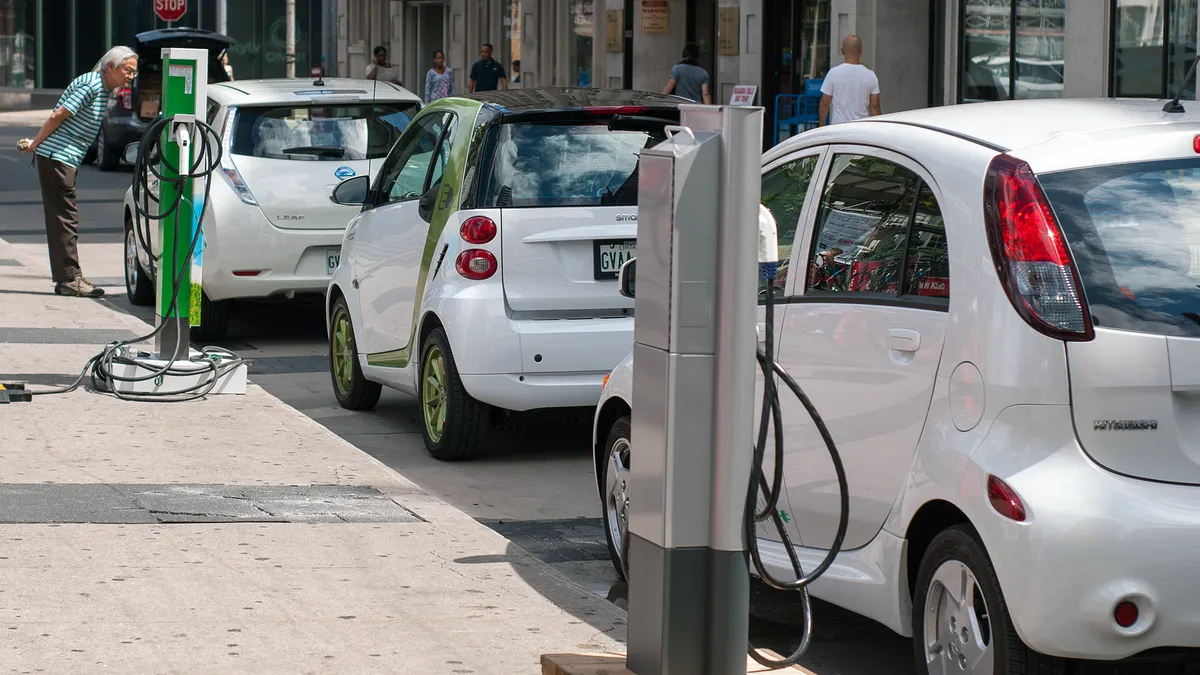Dive Brief:
- Analysts at Edmunds.com believe the expiration of federal tax credits supporting electric vehicles will spell doom for the industry. In a blunt assessment, the firm writes, "without these credits, this market is likely to crash."
- The research is based on the Georgia market, where electric vehicles enjoyed strong support — at least while a $5,000 state credit was in place. When that incentive was removed, EV sales plunged.
- Not everyone agrees, of course: Over at Motley Fool, Evan Niu (who owns shares in Tesla), says the company's strong orders for the M3 indicate "there is meaningful demand for the right EV at the right price."
Dive Insight:
Electric vehicle sales in the United States hover about 1% of market share, and according Edmunds that number could plunge if a $7,500 federal tax credit expires.
That appears likely to happen given President Trump's disdain for regulation and support of traditional fuels. Last month, he announced plans to roll back tougher Obama-era rules on vehicle fuel economy, and Republicans controlling Congress are not expected to press the issue.
"Federal tax credits for EVs are a part of broader set of EPA policies, which require congressional approval to adjust. So the Trump administration may not eliminate them prematurely but is unlikely to extend these credits," Edmunds wrote.
Beginning in 2010, the federal government offered a $7,500 credit for the purchase of an electric vehicle. But manufacturers were only given 200,000 of the credits each, and the supply is dwindling.
To get an idea of what may happen when they expire, Edmunds examined the Georgia market. The state’s $5,000 tax credit for the purchase of an electric vehicle was eliminated two years ago, replaced with a $200 registration fee.
"The crash in sales should not have been too much of a surprise considering the massive payment spike for lessees who accounted for 80 percent of all EVs sold in the state," Edmunds said. "The average monthly lease payment for a Nissan Leaf increased by 119 percent following elimination of the state credit."
The Atlanta Journal-Constitution reported that sales of electric vehicles fell from more than 1,400 before the credit expired to less than 250, and that the decline has remained consistent in the last year and a half.
But for another take, look to Motley Fool, where Senior Technology Specialist Niu believes a new wave of electric vehicle offerings, with longer ranges and lower price-points, is likely to begin driving the market.
"Even without the credit, the average sales price of a car in the U.S. is right around $35,000, so it's not unreasonable to price a compelling EV at that price point with no additional incentives," writes Niu.
EV growth has direct consequences for utilities, with the electrification of transportation presenting the opportunity for significant increases in power demand, as well as grid services from aggregated fleets of EV batteries.














